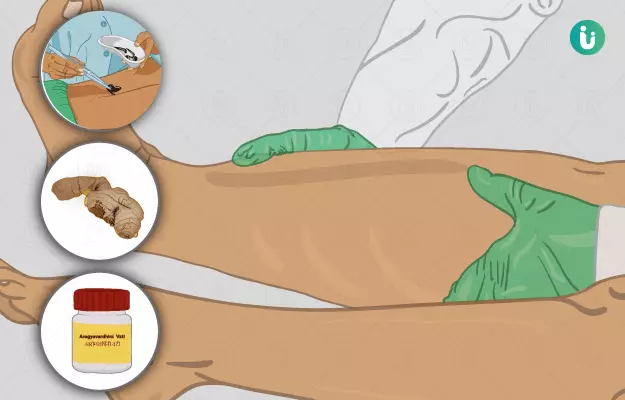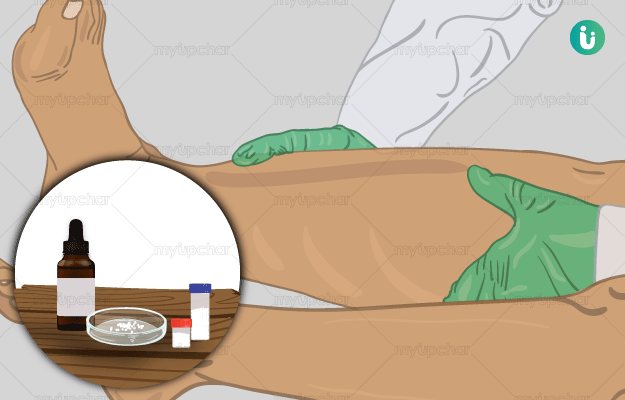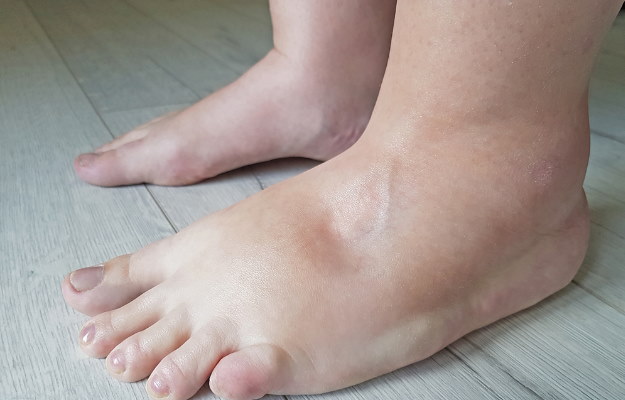Swelling refers to the enlargement of a body part, which is caused due to fluid buildup or inflammation. Swelling can either be localised (in one section of the body) or generalised (all over the body). Some people experience a slight swelling in the legs, especially in the lower legs, due to walking or standing for a long time. It more frequently reported in the warmer months of the year. This is an example of localised swelling. Generalised swelling occurs in case of chronic or severe disease or in case of organ failure.
Swelling or oedema is of two types – pitting (when the swollen area is pressed, it leaves a dent, which gradually fills back) and non-pitting (no dent is seen when the swollen area is pressed).
The Ayurvedic term for swelling is shotha. As per Ayurveda, swelling in the body occurs due to a disturbance in organ function. Heaviness in the body and discolouration of the swollen part are some of the general symptoms of swelling.
Ayurvedic procedures of abhyanga (oil massage), lepas (coating the affected body part with medications) and raktamokshana (bloodletting) help get rid of the excess dosha and toxins in the body. Arjuna, shunthi (dried ginger), eranda (castor) and punarnava (red hogweed) are some of the herbs used to reduce swelling. Ayurvedic preparations of chandraprabha gutika, punarvasava, dashamoolarishta and arogyavardhini vati are effective in reducing swelling. Including old rice, buttermilk, horseradish, radish and pointed gourd in the daily diet and avoiding incompatible food combinations, sexual intercourse and long walks will help improve oedema.
















